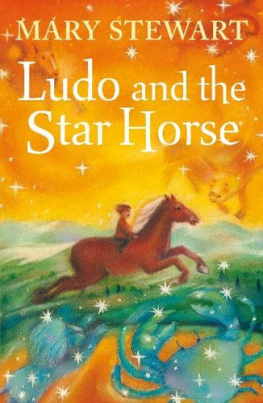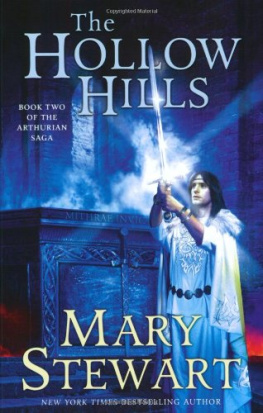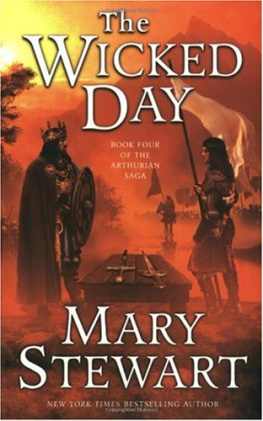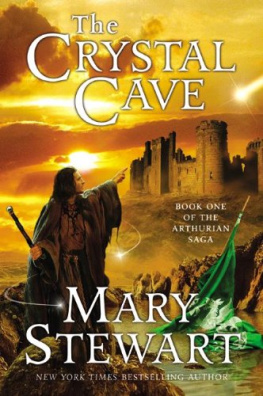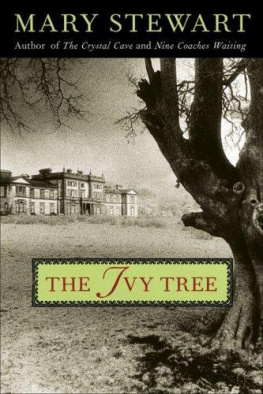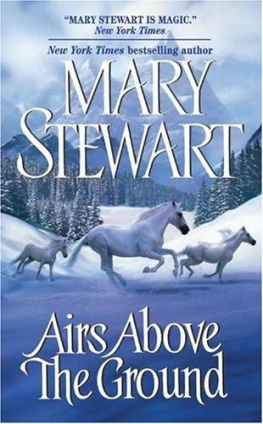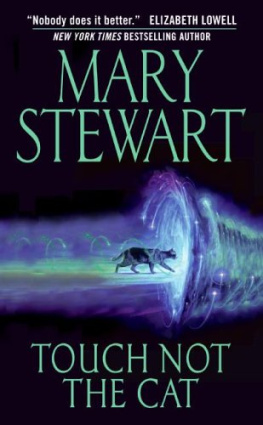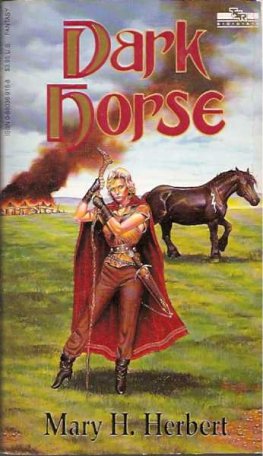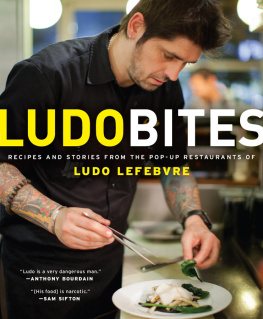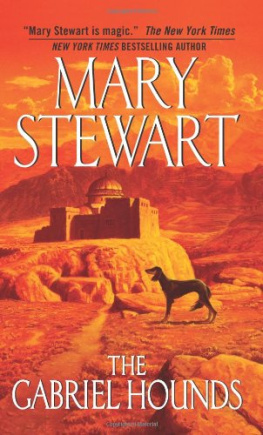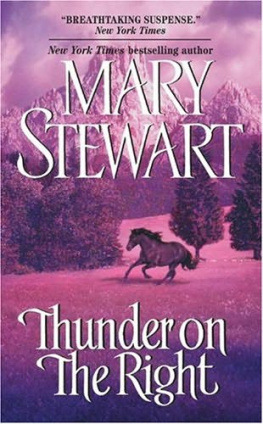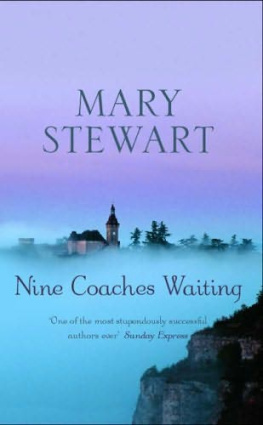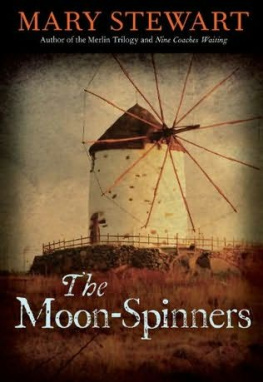Mary Stewart - Ludo and the Star Horse (Modern Classics)
Here you can read online Mary Stewart - Ludo and the Star Horse (Modern Classics) full text of the book (entire story) in english for free. Download pdf and epub, get meaning, cover and reviews about this ebook. year: 2001, publisher: Hodder Childrens, genre: Adventure. Description of the work, (preface) as well as reviews are available. Best literature library LitArk.com created for fans of good reading and offers a wide selection of genres:
Romance novel
Science fiction
Adventure
Detective
Science
History
Home and family
Prose
Art
Politics
Computer
Non-fiction
Religion
Business
Children
Humor
Choose a favorite category and find really read worthwhile books. Enjoy immersion in the world of imagination, feel the emotions of the characters or learn something new for yourself, make an fascinating discovery.
- Book:Ludo and the Star Horse (Modern Classics)
- Author:
- Publisher:Hodder Childrens
- Genre:
- Year:2001
- Rating:4 / 5
- Favourites:Add to favourites
- Your mark:
- 80
- 1
- 2
- 3
- 4
- 5
Ludo and the Star Horse (Modern Classics): summary, description and annotation
We offer to read an annotation, description, summary or preface (depends on what the author of the book "Ludo and the Star Horse (Modern Classics)" wrote himself). If you haven't found the necessary information about the book — write in the comments, we will try to find it.
Ludo and the Star Horse (Modern Classics) — read online for free the complete book (whole text) full work
Below is the text of the book, divided by pages. System saving the place of the last page read, allows you to conveniently read the book "Ludo and the Star Horse (Modern Classics)" online for free, without having to search again every time where you left off. Put a bookmark, and you can go to the page where you finished reading at any time.
Font size:
Interval:
Bookmark:
Note on the Zodiac
The name "zodiac" is the title that in the ancient world was given to an imaginary belt or track in the sky, which lies along the path of the sun. All the planets lie within this belt.
In ancient times it was believed that the sun moved around the earth, taking a year to complete his journey. The circular track of the zodiac along which he passed was divided into twelve sections (much as a clockface is divided into hours), and each of these twelve sections took about a month for him to travel through. So the sun's journey through the entire zodiac marked off a sort of heavenly calendar.
Each of the twelve divisions of this heavenly calendar was called a "house," and each house was ruled by the constellation (or group of stars) which was thought to lie within it. Many of these constellations were called after animals, and this is why the sun's track was known as the zodiac. The name comes from a Greek word "zodiakos" which means "to do with animals." Each house, too, had its ruling planet or deity; for example, Apollo in the House of the Twins; Neptune in the House of the Fish; Vulcan the smith in the House of the Scales; and the Moon in the House of the Crab.
The beginning of the sun's year was the spring, and on March 21 he entered the first house of the zodiac, which was the House of the Ram. On April 21 he reached the House of the Bull; and after this, taking about a month in each house, he passed in order through the other houses. There is an old rhyme which will help you to remember the houses, and the order in which they come: The Ram, the Bull, the Heavenly Twins, And next the Crab the Lion shines, The Virgin and the Scales, The Scorpion, Archer and Sea Goat, The man that bears the Watering pot,
The Fish with glittering tails.
Ludo's journey started in November, so of course he entered the zodiac through the House of the Archer.
Each of these creatures of the zodiac, whom I have called the lords of the houses, had his own sign.
It was a map of the heavenly calendar, showing these signs, which Gula gave to Ludo to guide him on his journey.
Home
This is the story of something that happened a long time ago, to a boy called Ludo, and you can believe it or not as you please. It was told to me by Ludo's own grandson, and personally I believe every word of it. But you, Amelie, must judge for yourself.
Ludo Spiegl was eleven years old, and he lived near a little mountain village in Bavaria called Oberfeld. Herr Spiegl, Ludo's father, was very poor. He owned three goats and a cow, and that was all, if you don't count his wife and son. Even the old horse he kept for work, and the cottage he lived in, poor as it was, did not belong to him, but to the King, who owned the whole valley and all the land for many miles around.
Herr Spiegl made his living chiefly by carpentry. He even cut the trees himself, and dragged them down from the mountain with the help of Renti, the old horse, then sawed them up and stacked them and left them to weather. He was a good carpenter, and there wasn't a house in Oberfeld without some of his furniture in it. Even Doctor Kainz, from as far away as Niederfeld, had asked Ludo's father to make him a table, and Herr Spiegl had once carved a seat for the church, which (said the priest) was good enough for one of the King's castles. But the work was slow and hard, and of course it took a long time, so Herr Spiegl had to take any other work that came his way. In summer he and Ludo whose real name was Ludwig, the same as the King's -left the cottage in the valley and moved up into the mountains with the goats and the cattle from all the valley farms. There the sun shone brilliantly all the time, and there was plenty of good grass and water. This was the Alm, the summer farm. Twice a day all the cows came in from the pastures to be milked, and from this milk Ludo's father and the other men made cheeses, which were stored and later on taken down the mountain and sold. The cheese making was hard work, in sheds full of steaming vats, and so was the milking. Ludo was too young to help. He spent every day out on the mountainside watching the cows and goats and seeing that they did not stray. He loved the summer.
But when summer ended life was hard and fierce. Every year, about the middle of September, when dew lay heavy on the grasses, and the butterflies wavered sleepily over the blue scabious and silver thistles, the cattle would trudge, with sweet bells tolling, down the steep mountain paths back to their winter homes in the valley. This was a time of festival in the village; there would be music and dancing and the blessing of the cattle, and for a short time life would be full of gaiety and color; but then the feasting would be over, the cattle would file into their places in the lower rooms of the cottages, and the Spiegls' cow and the goats and Renti would be shut up for the long winter months. Ludo's father would check the store of firewood stacked under the eaves, and would sort out the good seasoned wood for his carpentry, and the household would settle down to the routine of winter.
Then the snow would come.
You have never seen such snow. You would go to bed one night as the flakes began to drift, and the sky was dark, had been dark all day. When you awoke in the morning the sun was out, and what a sun!
A blaze in a sky so blue that it hurt the eyes, reflected everywhere from snow dazzling white with clear blue shadows. You could tell where the houses were because the snow was house shaped. You could see the pine trees because the snow stood glittering in Christmas-tree columns. But that was all. Roads, streams, fields had gone. It was winter, and the snow locked the valleys.
In some ways this was an even better time than summer, because people would get out their snowshoes and take to the snow. Ludo could never decide which he loved more; lying out in the sunshine at the Alm, watching the goats and cattle peacefully grazing hour by hour; or racing downhill over the crisp and sparkling snow, as swiftly as the King flew past in his golden sleigh with the four gray horses.
But winter could be cruel, too. You could go to bed one evening after a day in the sun and snow, and perhaps if you woke in the night you might hear a small sound like a dog whining at the window's edge. But it wasn't the dog; he was curled beside you in the blankets. It was the north wind; the wicked winter wind that brought the blizzard snow, thick whirling flakes that blotted the world out and drifted deep in the valleys and, worst of all, brought great torrents of snow rushing down the mountainsides.
These were the avalanches, which swept away everything in their path and buried ithouses, cattle, people, everythingso deeply that they were never seen again until months later when the snow melted in the spring and the bodies were dragged out to be buried.
It was on one such night that Ludo's story starts.
All the week it had snowed, so that the outlines of village and valley were blurred and soft with snow. Inside the Spiegls' house it was warm and rather stuffy, because nobody with any sense would have opened a window, and indeed Ludo and his father spent most of their day near the big stove in the corner, busy with their winter tasks.
First of all let me tell you what the cottage was like, because, Amelie, it wasn't the kind of house you have ever seen, and probably never will now, though here and there in Bavaria to this day there are tumbledown old wooden huts that look like cattle sheds, but which were once houses where people like Ludo lived.
The Spiegls' cottage was all made of wood, and was two storeys high. In the bottom storey the animals lived during the winter; they had stalls at one end of the roomwe had better call it a barnwhile the other end was used as a storeroom for the animals' fodder, and also for some of the family's food, like potatoes, and tubs of pickled cabbage which they called sauerkraut, and strings of hard dry sausages, and flour. Then there were Herr Spiegl's tools, and his jars of glue and varnish, and a stack of seasoned wood ready for making into furniture. In one corner stood a box filled to the brim with what looked like the dried roots of trees, and knotty bits of wood broken from dead branches. Which is, in fact, exactly what they were. Besides being good at making tables and chairs, Herr Spiegl enjoyed wood carving, and almost every evening in winter, when the other work was done and Frau Spiegl sat down by the stove with her sewing, Ludo and his father would sit there, too, whittling away at carvings of gnomes or goats or chamois, which they might be able to sell during the summer to make a little extra money.
Next pageFont size:
Interval:
Bookmark:
Similar books «Ludo and the Star Horse (Modern Classics)»
Look at similar books to Ludo and the Star Horse (Modern Classics). We have selected literature similar in name and meaning in the hope of providing readers with more options to find new, interesting, not yet read works.
Discussion, reviews of the book Ludo and the Star Horse (Modern Classics) and just readers' own opinions. Leave your comments, write what you think about the work, its meaning or the main characters. Specify what exactly you liked and what you didn't like, and why you think so.

